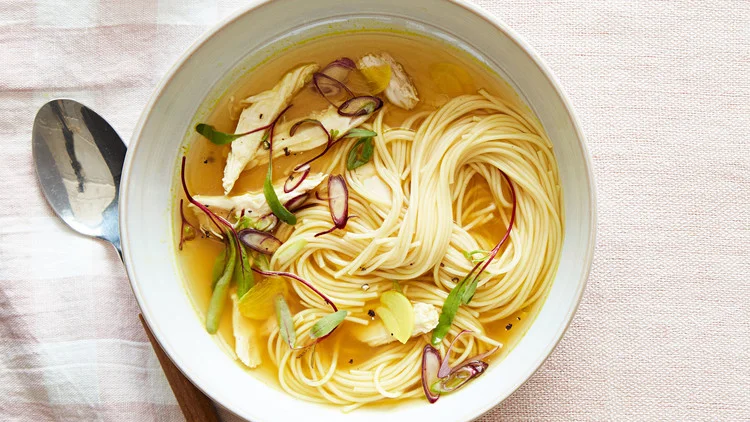Intermittent Fasting - The Best Way to Lose Weight and Have Beautiful Skin
It's almost the middle of February and we're all ready for spring and warmer temperatures. The holidays are a time when most of eat more food than we should and it's so much harder to exercise when the weather is cold and rainy than it is when it's beautiful outside. Part of this is mental, but I would much rather go out for a walk or even get up and drive to a yoga class when the weather is beautiful. My point to all of this is, it's time to get ready for bathing suits, shorts and Spring because we all want to look and feel our best! Intermittent fasting is one way to get healthy and improve the quality of your health and visibly improve your skin. I've been practicing this method off and on for about a year and it definitely works when I work it! This isn't about depravation, it's about being your best healthy self. You can download my e-book - A weeks worth of Recipes for Healthy Eating, to get you started with some healthy food as you try intermittent fasting. It's on the home page of this blog, so keep scrolling and you'll see it!
I'm sure by now that you've all heard about Intermittent Fasting, but there are so many different ways to fast, that I thought it would be good to break it down.
Intermittent fasting may be beneficial if you are bloated, have itchy or blotchy skin or acne, heartburn, or difficulty loosing weight.
Fasting has been used by different cultures throughout time for different reasons, one of them being for the purpose of healing the body and skin. We've all been taught to believe that we need "three square meals a day" to be healthy, but that's not necessarily true. Fasting can have positive effects for the body. We've all fasted at some point...because of a stomach bug or other illness, we've stopped eating and maybe even drinking. This causes our bodies to go into repair mode. We also fast in the night while we sleep. Intermittent fasting allows the body to redirect it's energy from digesting food. The energy goes into repair and detoxification, giving the liver and kidneys a beneficial break. Other bodily processes speed up during fasting making it helpful for addressing problems with the skin, including contact dermatitis, hives, eczema and acne.
Intermittent fasting is a tool we can use whenever we need to reboot our system, and it can provide dramatic results. If you switch something on and leave it running without giving it a break, it will soon show signs of wear and tear. Giving your body a break from digestion will have a positive impact.
When you eat, more food energy is ingested than can immediately be used. Some of this energy must be stored away for later use. Insulin is the key hormone involved in the storage of food energy. When we eat, insulin rises, helping to store the excess energy in two ways. Sugars, or glycogen are stored in the liver, but there is limited space in the liver so the liver starts to turn the glucose into fat. Some of this fat is stored in the liver but most of it is stored in the body.
When we fast, insulin levels fall and the body starts to burn stored energy because no more is coming through food. Blood glucose falls, so the body pulls glucose out of storage to burn for energy. We are either storing food energy or we are burning it. If eating and fasting are balanced, then there is no weight gain.
If we start eating the minute we get out of bed and don't stop until we go to sleep, the body stays in a fed state. Over time, we will gain weight because we have not allowed our body any time to burn food energy.
To lose weight, we simply need to increase the amount of time we fast. Fasting allows the body to use its stored energy. If you are constantly eating, as is often recommended, then your body will use the incoming food energy and never burn the body fat...you'll only store it. Your body will save it for a time when there is nothing to eat.
Try this recipe for Avocado and Beet Salad from makeup artist Wendy Rowe.
Image from The Coveteur
The most obvious benefit of intermittent fasting is weight loss, but there are many other benefits including:
Improved mental clarity and concentration
Weight and body fat loss
Lowered blood insulin and sugar levels
Reversal of type 2 diabetes
Increased energy
Improved fat burning
Increased growth hormone
Lowered blood cholesterol,
Potential prevention of Alzheimer's disease (this is huge for me since both my parents have been diagnosed with Alzheimer's and live in memory care)
Reduction of inflammation
Improved skin
There is no more powerful method than fasting for lowering insulin and decreasing body weight.
Here are the different ways to practice Intermittent fasting:
16:8 - This is my preferred method. This involves daily fasting for 16 hours. You eat all your meals within an 8 hour time period and fast for the remaining 16 hours. You wait 16 hours after your last meal at night before you eat again the next day. Generally, I eat only 2 meals, skipping breakfast. If dinner is finished at 8pm, I don't eat again until noon the next day (I do have water with Welleco Super Elixir, Vital Proteins Collagen Peptides, and coffee, and have recently added several cups of Wild Hibiscus Blue Tea).
20:4 - This is the same as 16:8, only the fast is for 20 hours instead of 16.
24 hour fasts - This involves fasting from dinner to dinner (or lunch to lunch). If you eat dinner on day 1, you would skip the next day's breakfast and lunch and eat dinner again on the second day. This means that you are still eating daily, but only once during that day. This could be done as much as two or three times per week.
5:2 fast - This method was popularized by Dr. Michael Mosely in his book The Fast Diet. This involves eating 5 regular eating days and 2 fasting days. However on these two fasting days, it is permitted to eat 500 calories each day. These calories can be consumed at any time during the day - either spread throughout the day, or as a single meal.
36 hour fast - This involves fasting for the entire day. If you eat dinner on day 1, you would fast for all of day 2 and not eat again until breakfast on day 3. This provides a more powerful weight loss benefit and it is very beneficial to the body.
Contrary to popular belief, studies show that fasting increases the metabolism. Another benefit is that if you exercise, your body will burn body fat for energy.
Fasting will not burn muscle. The body first breaks down glycogen into glucose for energy. After that, the body increases fat breakdown to provide energy. Excess amino acids are also used for energy, but the body does not burn its own muscle for fuel.
If you decide to try intermittent fasting, here are some tips:
Drink water,
Stay busy,
Drink decaffeinated coffee or tea
Ride out the hunger waves (they will pass)
Don't tell anyone who is not supportive
Give yourself at least a month to get used to it
Follow a low carb diet between fasting. This reduces hunger and makes fasting much easier. Don't binge after fasting, eat a healthy meal that you could hold in your two palms and eat slowly, chewing each bite at least 10 times.
You can also support the liver during fasting by starting each day with warm water and a squeeze of lemon juice, and drinking dandelion or milk thistle tea.
When you do eat, eat lots of fresh vegetables, add garlic and turmeric to your meals. Choose foods that help the liver function better, such as onions, broccoli, kale, Brussels sprouts, cabbage, beets and cauliflower. Also take a break from alcohol and caffeine (this one is difficult for me).
This may all sound very complicated, but it's not. For the record, I drink cream in my coffee, even when I'm doing the 16:8. You don't have to be a zealot who says no to everyone during a fast, you have to live. Adjust your fast if there is something you really want to do and start again the next day. Living in a constant state of denial is not mentally healthy.
This recipe for Tumeric-Ginger Chicken Soup comes from Martha Stewart.
Having said all of this, I truly believe that eating should be a pleasure. All to often, I find myself in a hurry, standing at the kitchen counter eating something before rushing out the door. While I do try to eat healthy food, this is not the way to do it. My goal is to try to be present when I eat and enjoy what I'm putting in my mouth.
Over the next few weeks, I'll be making and blogging some super healthy recipes to jumpstart getting our bodies ready for those bathing suits!
The information in this post comes from Eat Beautiful by Wendy Rowe, Nerd Fitness, and Diet Doctor.
I also have tutorials for some really healthy recipes on my YouTube Channel that you can check out here! If you like my videos, I would appreciate it so much if you would subscribe to my channel! I'm planning on making more soon and I can't wait to share them with you!




